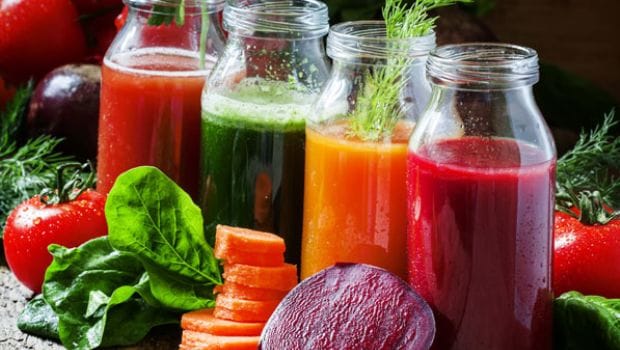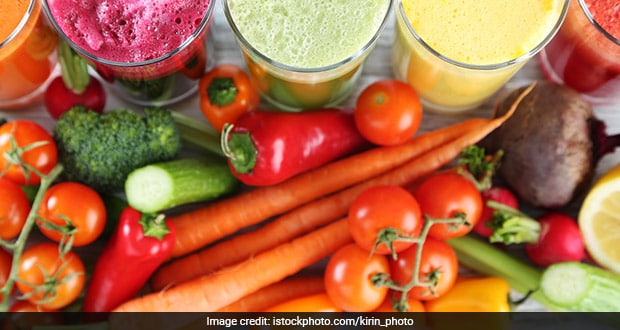According to Mayo Clinic, while vegetable juice has plenty of vitamins and minerals, it may be lower in fibre content and is generally less filling as compared to a serving of most whole vegetables. Enough fibre in your diet may reduce the risk of constipation, high cholesterol, high blood sugar and weight gain.(Also Read: 6 Health And Beauty Benefits Of Vegetable Juices)

while vegetable juice has plenty of vitamins and minerals, it may be lower in fibre contentVegetables juices are naturally low in calories and fat; however, they are still important sources of essential nutrients including potassium, vitamin A and vitamin C and folate. When you juice vegetables, the machine tends to separate the juice from the pulp, allowing the juice to flow out through a strainer removing the pulp. Removal of pulp means that you have discarded the fibre content that most of the pulp in the vegetable contains. One of the main nutrients in a vegetable is fibre, which is known to keep the bowel movement regular, stimulate digestion, stabilise blood sugar and regulate cholesterol along with keeping fuller for longer, thereby aiding weight loss.
By vegetable juice we mean freshly made juice at home and not the packaged ones that are loaded with preservatives and excess amount of sodium that have harmful effects on your health. According to Debjani Banerjee HOD, Dietetics PSRI Hospital, "Packed vegetable juice sounds better to us as it is comes handy. But they are high in sodium and less in fibre whereas green leafy vegetables such as broccoli, cabbage, spinach, et al can help you to fill your stomach easily and are rich in vitamins, minerals, et al as compared to lots of sugary juices, which are readily available in the market. Packed bottle also have preservatives which may have a detrimental effect on your health."
While consuming both of them is healthy, we suggest that you should switch between the two to reap maximum benefits. For people trying to lose weight, eating vegetables is much healthy than drinking juice, considering whole veggies have a lot more fibre than the latter. So, include both as a part of your daily diet and choose health!








